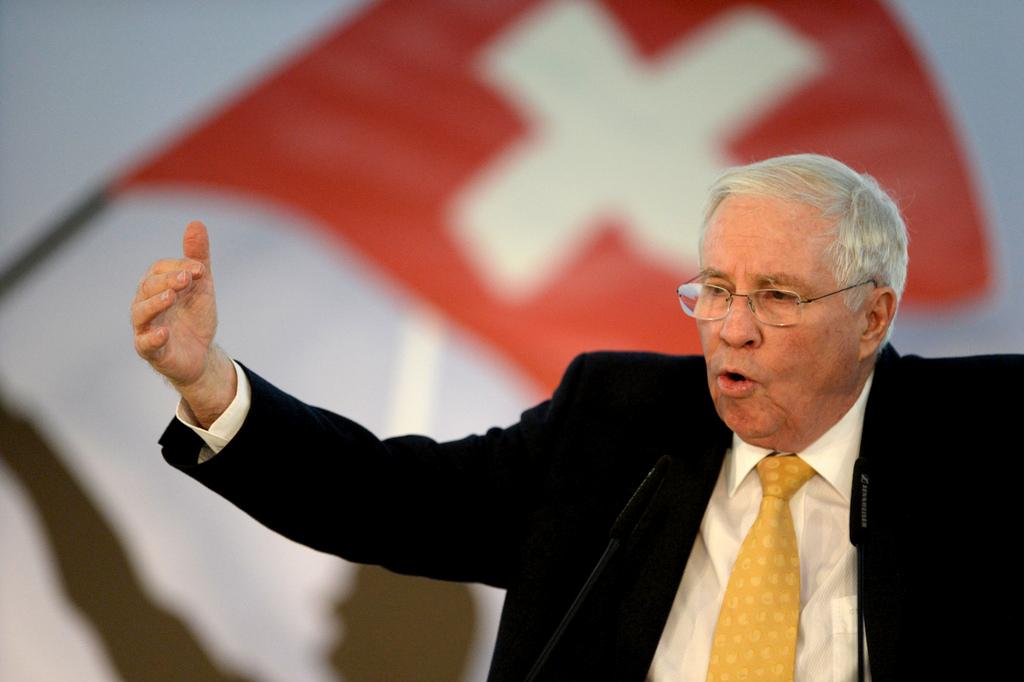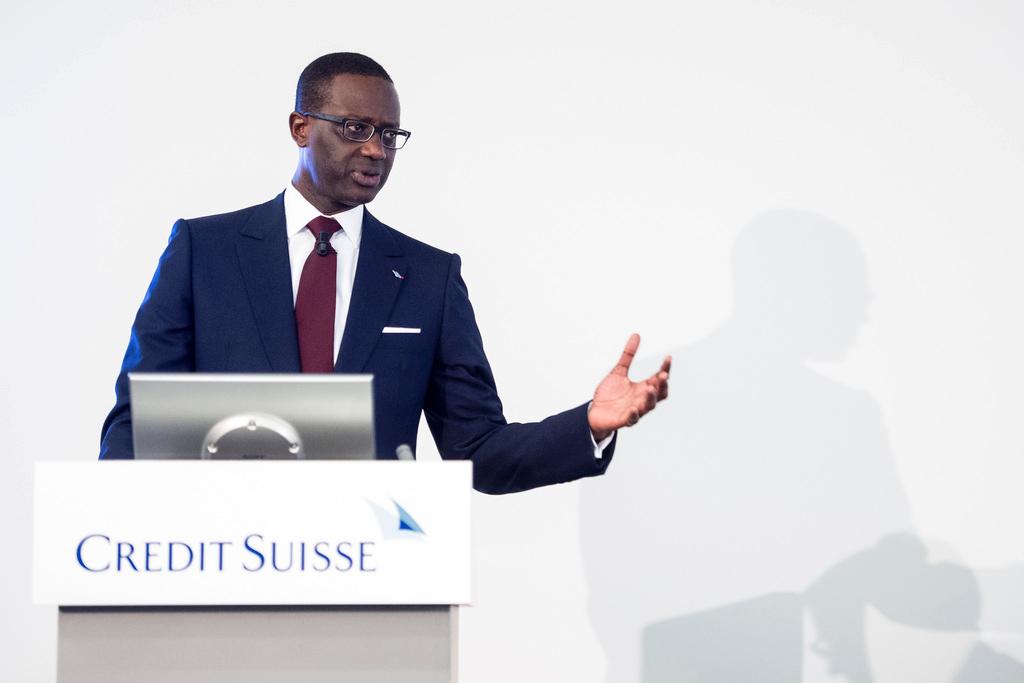
When the old boy’s network unravels

A handful of leaders with multiple roles once controlled Switzerland’s most powerful entities, from parliament to Credit Suisse. Today, researchers paint a very different picture of power in Switzerland – one that is less Swiss.
The word ‘elite’ is often applied to athletes, or top educational institutions. But for social scientists, the term perfectly describes Switzerland’s most powerful decision-makers.
“Sometimes, people think that when we are speaking about elites, we are speaking about a small number of people who are really good at something,” Felix Bühlmann, a professor of social and political sciences at the University of Lausanne, told swissinfo.ch.
“Actually, the word elite comes from ‘elected’. We in the social sciences speak about elites as groups of people who can make decisions of great importance to their societies.”
Bühlmann is the lead author of “Transformation of the Swiss Elite”External link, the first paper in a new research series called Social Change in Switzerland, co-edited by the Swiss Centre of Expertise in the Social Sciences, the University of Lausanne and the Swiss National Centre of Competence in Research.
For the series’ inaugural instalment, Bühlmann and his colleagues sampled a database of Swiss elites over a hundred-year timespan to create a sketch of their professional activities and connections. They found that while 20th century elitesExternal link in Switzerland generally shared the same social and educational backgrounds and occupied close-knit networks of power, today’sExternal link elites are much more diverse and independent of each other.
“Since the 1990s, we see much less connection between different elite spheres in Switzerland,” says Bühlmann. “We are now in a state of transition, and we don’t really know where we are going from here.”
Members only
The Swiss Elite Database contains 20,000 entries detailing the personal and professional history of those in Switzerland’s elite spheres – political, economic, administrative and academic – between 1910 and 2010. Data samples at 20-year intervals show that for most of the 1900s, the majority of elites in Switzerland were wealthy, highly educated, male – and of course, Swiss.
Interestingly, the researchers found that once an individual gained access to an elite sphere, his name was likely to pop up again and again in other spheres. In 1957, for example, 19.5% of parliamentarians also held a position on the board of directors of one of the 110 largest Swiss companies.
Social scientists call this the “militia system”: when members of parliament keep up professional occupations in addition to their political mandates.
“This explains why members of Swiss parliament were tightly linked with economic associations or the boards of companies,” explains André Mach, who is also a University of Lausanne professor and a co-author on the paper. “Many elites also occupied an official military grade in the army.”
That may sound like an impossible workload for one person, but it was perhaps not as extreme then as it might be today.
“The charge of members of parliament has increased,” says Mach. “The legislative process has become much more complex, and most of their time is really dedicated to their political mandate. This was much less the case before.”
Mind your own business
An increasing parliamentary workload is just one factor in the erosion of the Swiss elite network: money has also played a major role. While there used to be a tremendous amount of overlap between the management of major banks and the boards of large companies, this connection has weakened since the mid-1990s.
“In the last 30 years with the liberalisation of the financial markets, the stock markets set the pace of the world economy,” says Bühlmann. “We also see this in Switzerland, and this kind of capitalism produces new forms of coordination.”
Mach says that the gradual disengagement of elites at banks and companies was a two-way street.
“Banks disengaged from participation on the boards of industrial companies, because their revenues stemmed less from credit activities and more from investment banking on the financial market, which had become much more lucrative,” he says. “At the same time, the largest Swiss companies increasingly relied on the stock market for financing and less on credit from banks.”
Power, politics, and wealth have clearly had a strong impact on Switzerland’s elite networks. But the researchers also identified a more subtle influence: social expectation.
“The idea of people occupying several decisional positions has become increasingly less accepted among the media, and in public opinion,” says Mach. “The argument is that they cannot do their jobs very well if they are dispersed among several positions.”
Old versus new
One of the most dramatic transformations in the Swiss elite has been the internationalisation of the economic sphere. Until the 1990s, control of multinational Swiss companies generally remained in Swiss hands. In 1980, the proportion of top management positions held by foreigners at the 110 largest Swiss firms was 3.7%. By 2010, the proportion had risen to 35%. Finance giant Credit Suisse provides an excellent example of this trend with its last CEO, American Brady Dougan, and its current CEO, Tidjane Thiam.
Other elite spheres have been more resistant to change. University of Lausanne social science researcher and co-author Stéphanie Ginalski says that while Swiss government reforms gave women access to positions of political power in the 1970s, the economic elite lags behind when it comes to gender equality.
“There have been important changes in the political sphere since 1971, when women obtained the right to vote and get elected at the federal level,” says Ginalski. “But things change much more slowly in the economic sphere.” Indeed in 2010, the proportion of female elites in the economic sphere was just 10%, compared to 27.6% in the political sphere.

Wait and see
The researchers say they will continue to sample and analyse data on Swiss elites at five to ten-year intervals to identify new patterns. Until more data are gathered, the future role of elites in Swiss society is difficult to predict. But through the Social Change in Switzerland series, researchers and the public can look to history for insight.
“Those who said that the old elite system was a good system would say, ‘we can react quickly because we are so close to each other; if we have to take important decisions, we can do it together in a small group, and that keeps society running smoothly,’” says Bühlmann. “On the other hand, the functioning of that elite was not transparent… [It] was completely at odds with democratic principles.”
Mach notes that anticipating future transformations of the Swiss elite has been made even more difficult by the federal popular initiative to limit mass immigration. Since the vote passed on February 9, 2014, Switzerland has been busy renegotiating labour market agreements with the EU.
“You have a really internationalised elite among top managers of large companies. This is also true of the academic field: the proportion of foreign professors in Switzerland is among the highest in Europe,” says Mach. “At the same time, in the political sphere, conservative parties less open to internationalisation have success. It is really quite contrasting, these two trends.”

In compliance with the JTI standards
More: SWI swissinfo.ch certified by the Journalism Trust Initiative































You can find an overview of ongoing debates with our journalists here . Please join us!
If you want to start a conversation about a topic raised in this article or want to report factual errors, email us at english@swissinfo.ch.